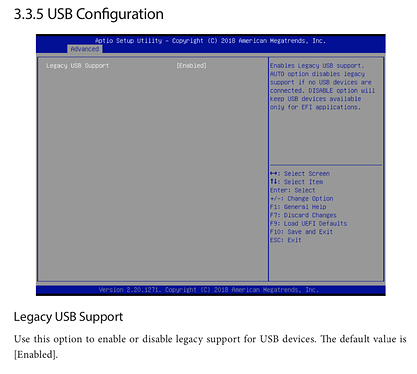Hi Henry, how did you get ROCK running on your system… I thought ROCK would only run on a NUC???
No, mine works fine on a Fujitsu Q956.
ROCK is specifically written for NUC hardware from generation 5 onwards. But it will work on other hardware that shares the same chipsets. What ROCK does however is limit you to NUC capacity. For example you can have two HDD’s, one for the OS, one for music. If your board supports six HDD’ s you cannot use them all with ROCK. In actual fact, the biggest issue with newer boards is legacy boot mode. That has to be there to load ROCK. It was on my board at the time of purchase without me needing to update my bios.
THX Frank and Henry,
I am now evaluating the following setup:
· Case: HDPlex H5 2nd Gen
· Motherboard: AsRock Rack X470D4U Micro ATX Server Motherboard with Legacy USB Support - to run ROCK
· Processor: AMD RYZEN 7 2700 8-Core 3.2 GHz (4.1 GHz Max Boost) Socket AM4 65W
· Ram: Hynix 16GB 2x8GB ECC DDR4 2400
· OS SSD: Samsung 970 PRO M.2 NVMe SSD 512GB
· MUSIC SSD: Samsung 860 QVO 2TB 2.5"SSD
· Power Supply: HDPLEX 300W
· JCAT Net Card FEMTO
· OS ROCK or EUPHONY at a later stage
OS doesn’t need anywhere near 512. If you can go smaller, do so if a saving is also possible. Also an AMD chipset comes with additional uncertainties in ROCK but should be OK with Euphony or another Linux OS.
Though this thread is a bit old I would add that it is possible to use dual port Ethernet with Rock
See this thread: ROCK Dual Ethernet - Primary Port Not Exposed [RESOLVED]
I’m currently using this config in my Mock using the internal mother board Ethernet and an additional usb Ethernet adapter. Easy setup and works great.
I see no reason it will not work also with the JCat cards.
As long as Rock/Mock sees the 2 Ethernet ports it can be configured.
It won’t be dhcp and the device connected to the second port won’t have internet access but as it will most likely be used for the Roon endpoint I would say in most cases you don’t care - all control can be through the Roon remote.
Obviously there are different kinds of end points. Some you can configure an IP and get the core to communicate to it. These would be devices like RoPieee powered Pi’s and endpoints running ROCK. If you don’t need or want to be exposed to the internet that is fine. However most commercial streamers do not allow configurable IP’s and rely on DHCP for a working IP. This means they cannot be fed direct from ROCK powered machines. But you can with Windows, Mac and any choice of audiophile Linux distros. ROCK sits isolated in its inability to expose a second port to DHCP.
